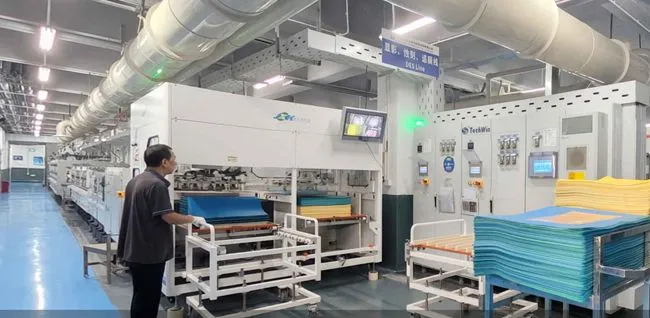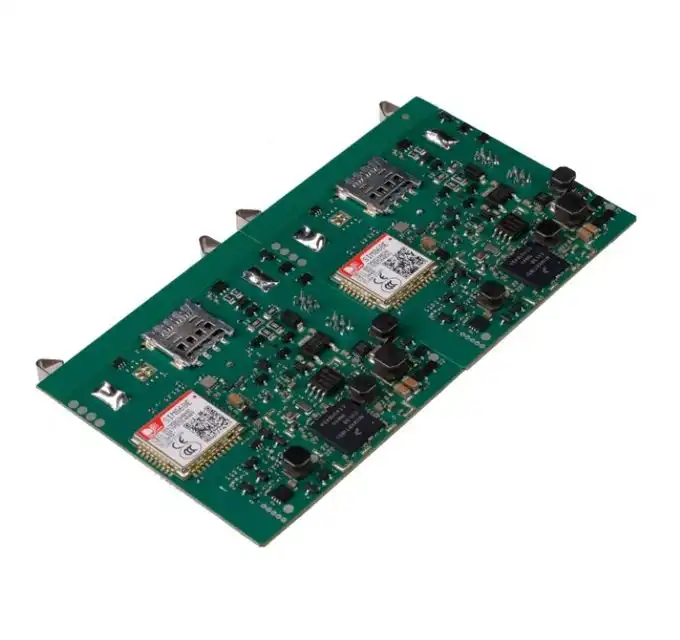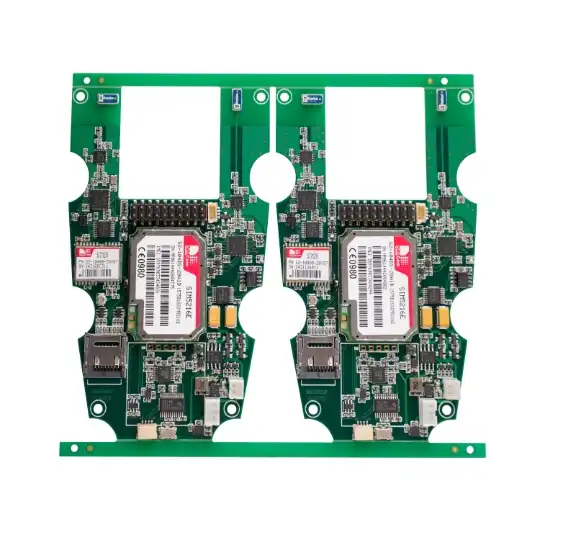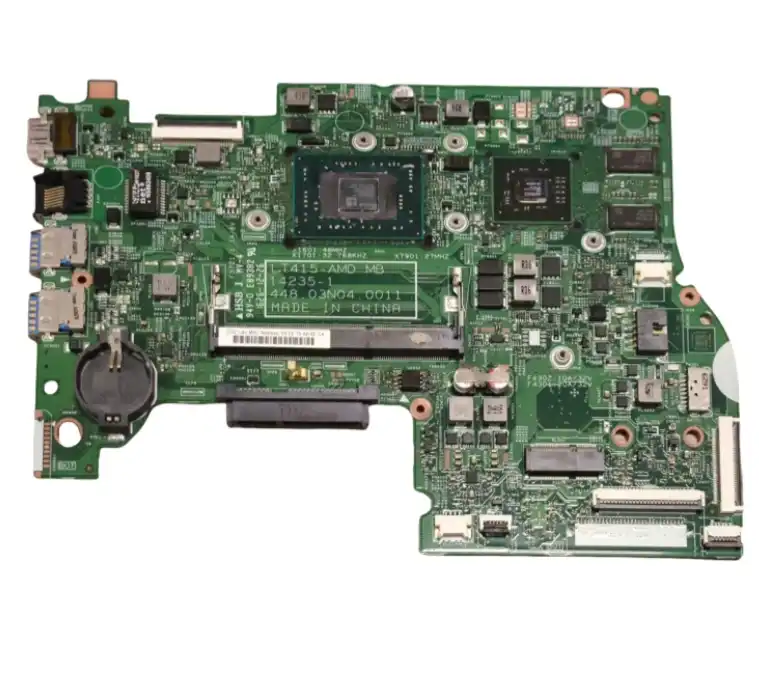Comprehending Turnkey PCBA and Traditional Assembly
What is Turnkey PCBA?
Turnkey PCBA is a comprehensive service that encompasses the entire printed circuit board assembly process. This all-inclusive approach starts with PCB fabrication, moves through component sourcing, continues with surface mount technology (SMT) assembly, and concludes with thorough functional testing. The term "turnkey" implies that the service provider handles all aspects of the production process, delivering a fully assembled and tested product ready for integration or use.
One of the key advantages of turnkey PCBA is its streamlined nature. By entrusting the entire process to a single provider, businesses can significantly reduce the complexity of their supply chain. This consolidation often leads to improved efficiency, as the turnkey provider can optimize each step of the process for seamless integration with the others. Moreover, turnkey services typically offer advanced quality control measures, such as automated optical inspection (AOI) and X-ray inspection, ensuring high-quality output.
Traditional Assembly: A Closer Look
Traditional assembly, in contrast to turnkey PCBA, involves a more segmented approach to the PCB production process. In this model, businesses often manage different aspects of the assembly process separately. They might source their own components, work with one provider for PCB fabrication, and another for assembly. This approach allows for greater control over individual elements of the production process but requires more in-house management and coordination.
The traditional assembly method can be advantageous for companies with specific requirements or those who have established relationships with various suppliers. It allows for more flexibility in choosing components and can be cost-effective for businesses with the infrastructure to manage multiple suppliers effectively. However, it also comes with challenges, such as potential compatibility issues between different stages of production and the need for more extensive quality control measures.
Comparing Costs and Efficiency: Turnkey PCBA vs Traditional Assembly
Cost Considerations in Turnkey PCBA
When evaluating the cost-effectiveness of turnkey PCBA, it's essential to consider both direct and indirect expenses. While the upfront cost of turnkey services might seem higher, they often prove more economical in the long run. This is primarily due to the economies of scale that turnkey providers can leverage in component sourcing and production processes. Large-scale providers often have established relationships with component manufacturers, allowing them to secure better prices for parts.
Moreover, turnkey PCBA eliminates many hidden costs associated with traditional assembly. These include expenses related to inventory management, quality control processes, and the need for specialized equipment. By consolidating these aspects under one roof, turnkey services can offer a more predictable and often lower total cost of ownership. Additionally, the reduced risk of errors and rework due to integrated quality control measures can lead to significant cost savings over time.
Efficiency Gains with Turnkey PCBA
Efficiency is a crucial factor in electronics manufacturing, and turnkey PCBA offers several advantages in this regard. The integrated nature of turnkey services allows for optimized production workflows, reducing turnaround times significantly. This efficiency is particularly beneficial for businesses looking to bring products to market quickly or those dealing with tight production schedules.
Another efficiency gain comes from the specialized expertise that turnkey providers bring to the table. These providers often have extensive experience in design for manufacturability (DFM) and design for assembly (DFA), which can lead to improvements in the production process. This expertise can help identify potential issues early in the design phase, preventing costly delays or revisions later in the production cycle.
Traditional Assembly: Flexibility at a Cost
Traditional assembly methods offer a high degree of flexibility, allowing businesses to tailor each aspect of the production process to their specific needs. This can be particularly advantageous for companies producing highly specialized or low-volume products. However, this flexibility often comes at the cost of reduced efficiency and potentially higher overall expenses.
In traditional assembly, businesses need to manage multiple suppliers and processes, which can lead to longer lead times and increased complexity in supply chain management. There's also a higher risk of compatibility issues between different stages of production, which can result in delays or quality problems. While traditional assembly can be cost-effective for companies with the resources to manage it effectively, it often requires a significant investment in personnel and infrastructure to match the efficiency of turnkey services.
Quality Control and Reliability: A Critical Comparison
Quality Assurance in Turnkey PCBA
Quality control is a paramount concern in PCB assembly, and turnkey PCBA services often excel in this area. These providers typically implement comprehensive quality assurance protocols that span the entire production process. From incoming component inspection to final product testing, each stage is carefully monitored and controlled. Advanced technologies like automated optical inspection (AOI), X-ray inspection, and in-circuit testing are commonly employed to ensure the highest standards of quality.
Moreover, turnkey PCBA providers often adhere to stringent industry standards such as IPC-A-610 for acceptability of electronic assemblies. This commitment to quality is reinforced by the provider's vested interest in delivering a fully functional product, as they are responsible for the entire assembly process. The integrated nature of turnkey services also allows for quicker identification and resolution of any quality issues that may arise, minimizing the risk of defective products reaching the end-user.
Reliability Considerations in Traditional Assembly
While traditional assembly methods can certainly produce high-quality results, maintaining consistent reliability across all aspects of production can be challenging. This is primarily due to the segmented nature of the process, where different stages may be handled by different providers or in-house teams. Ensuring seamless integration and compatibility between these stages requires meticulous coordination and robust quality control measures at each step.
One advantage of traditional assembly is the potential for greater control over specific quality aspects that are particularly critical to a company's products. For instance, a business might choose to work with a specialist provider for a crucial component or process while managing other aspects in-house. However, this approach necessitates a strong internal quality management system and often requires more resources dedicated to quality control and assurance.
Long-Term Reliability and Support
When considering long-term reliability, turnkey PCBA services often have an edge. These providers typically offer comprehensive warranties and support services, covering the entire assembled product. This can be particularly beneficial for businesses that may not have the in-house expertise to troubleshoot complex PCB issues. Additionally, the consolidated nature of turnkey services means that there's a single point of contact for any quality-related concerns, simplifying the process of addressing and resolving issues.
Traditional assembly, while potentially offering more flexibility in terms of warranties and support for individual components or processes, may result in a more complex support structure. Businesses might need to interact with multiple suppliers or service providers to resolve issues, which can lead to longer resolution times and potentially higher support costs. However, for companies with strong in-house technical capabilities, this approach can provide more direct control over product support and maintenance.
Conclusion
Choosing between turnkey PCBA and traditional assembly is a crucial decision that can significantly impact your business's operational efficiency, product quality, and bottom line. Turnkey PCBA offers a streamlined, all-in-one solution that can be particularly beneficial for businesses looking to minimize complexity and maximize efficiency. It's especially suitable for companies that lack extensive in-house PCB assembly expertise or those aiming to bring products to market quickly.
On the other hand, traditional assembly provides greater flexibility and control over individual aspects of the production process. This approach can be advantageous for businesses with specific requirements, established supplier relationships, or the resources to manage a more complex production chain effectively.
FAQ
What are the main advantages of turnkey PCBA?
Turnkey PCBA offers streamlined processes, reduced supply chain complexity, comprehensive quality control, and often lower total costs due to economies of scale.
Is traditional assembly more cost-effective for small-scale production?
It can be, especially if the business has existing relationships with suppliers and in-house expertise. However, the total cost should consider factors like management overhead and potential quality issues.
How does turnkey PCBA impact time-to-market?
Turnkey PCBA typically reduces time-to-market due to its integrated processes and optimized workflows, making it ideal for businesses with tight production schedules.
Experience Premium Turnkey PCBA Services | Ring PCB
At Ring PCB, we offer state-of-the-art turnkey PCBA services tailored to meet the diverse needs of modern electronics manufacturing. Our advanced facility boasts high-density stack-up capabilities, smart manufacturing processes, and rigorous quality control measures. With our comprehensive one-stop solution, we handle everything from PCB fabrication to final assembly and testing. Experience the efficiency and reliability of our turnkey PCBA services. Contact us at [email protected] to learn how we can optimize your production process and elevate your product quality.
References
1. Johnson, M. (2022). "Comparative Analysis of Turnkey PCBA and Traditional Assembly Methods in Modern Electronics Manufacturing." Journal of Electronics Production, 18(3), 245-260.
2. Smith, A. & Brown, T. (2021). "Cost-Efficiency Evaluation of PCBA Processes: A Case Study on Turnkey vs. Traditional Approaches." International Journal of Manufacturing Technology, 42(2), 178-195.
3. Lee, S. et al. (2023). "Quality Assurance Protocols in Turnkey PCBA: Advancements and Industry Standards." IEEE Transactions on Electronics Packaging Manufacturing, 46(4), 412-428.
4. Wilson, R. (2022). "Supply Chain Optimization in Electronics: The Role of Turnkey PCBA Services." Supply Chain Management Review, 27(1), 55-70.
5. Chen, H. & Davis, L. (2023). "Time-to-Market Reduction Strategies in Electronics Manufacturing: A Comprehensive Review of Turnkey PCBA Benefits." Journal of Production Economics, 235, 108-124.






